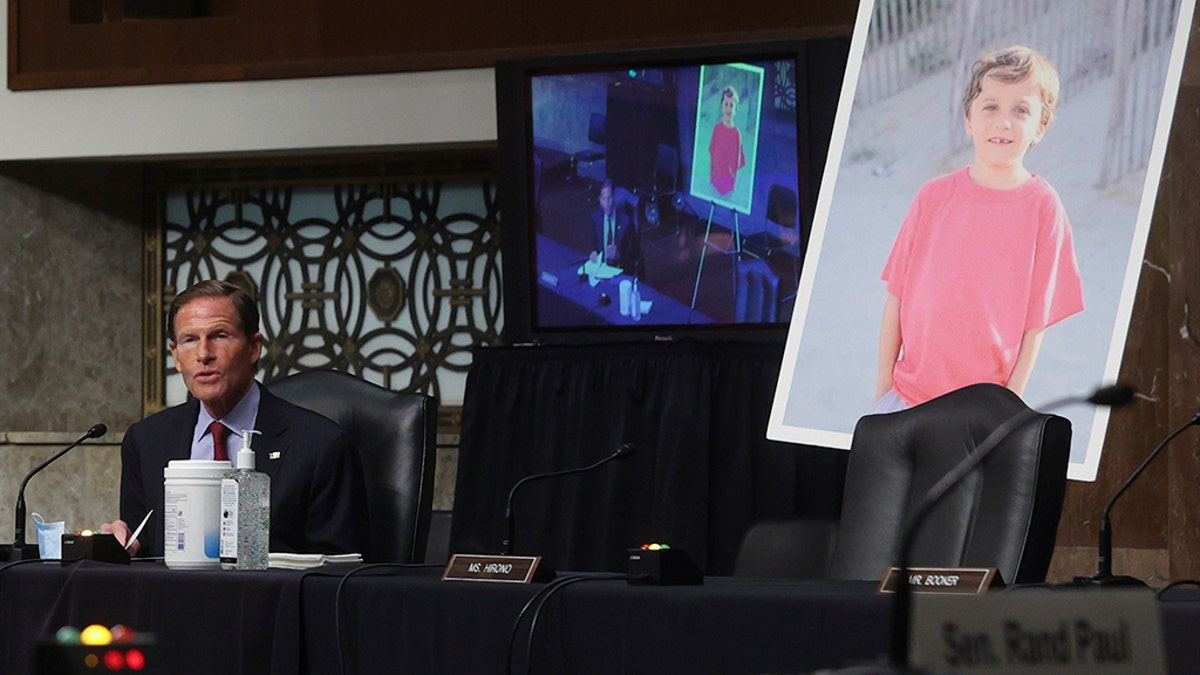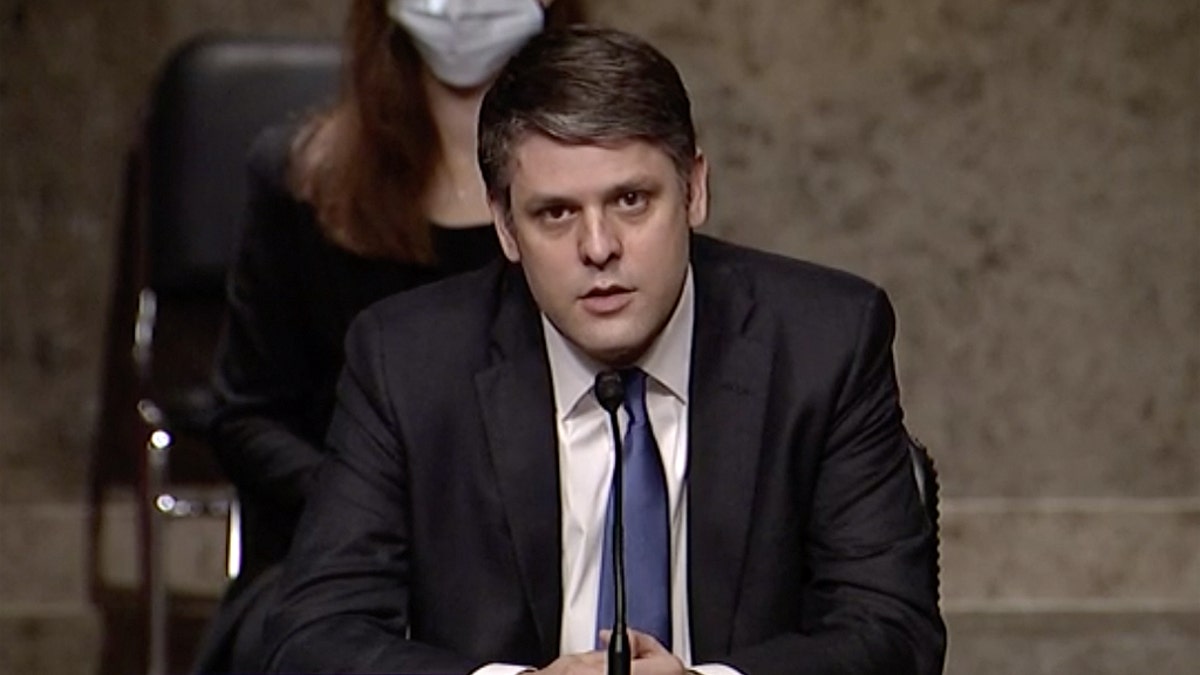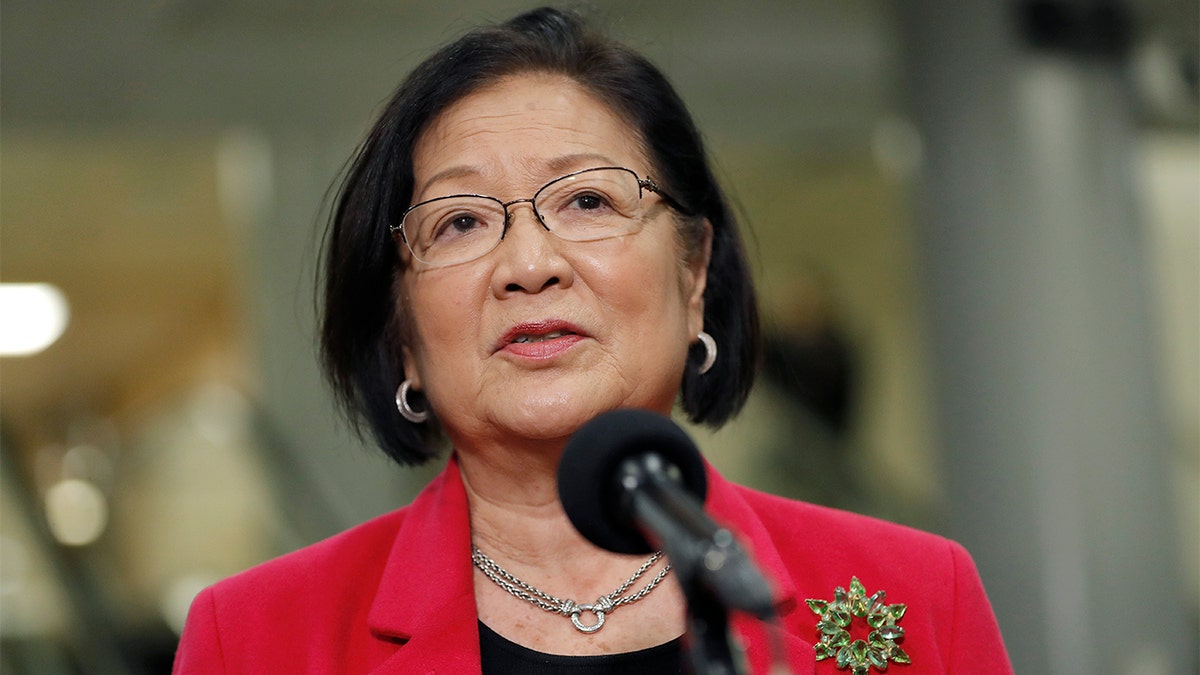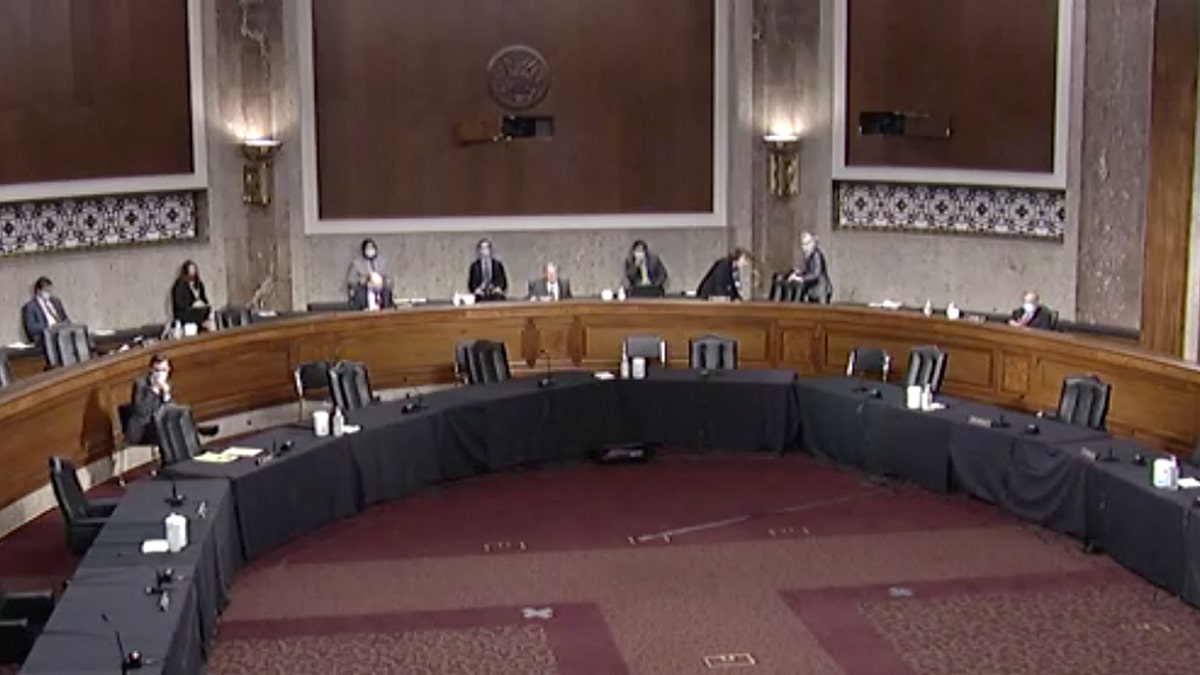Sen. Cruz on coronavirus, how Senate should handle Schumer's 'judicial intimidation'
Republican Sen. Ted Cruz joins 'Fox & Friends' to discuss the government's coronavirus response and Sen. Chuck Schumer's 'unacceptable' comments directed at Supreme Court Justices Gorsuch and Kavanaugh.
Senate Democrats on Wednesday sparred with President Trump's nominee for a powerful spot on the nation's second-highest court, attacking him for past statements on the Affordable Care Act (ACA), one of his recent rulings as a district court judge and his past support for Supreme Court Justice Brett Kavanaugh.
One of the tense moments came when Sen. Richard Blumenthal, D-Conn., pushed Walker on his past criticisms of the Supreme Court's reasoning in NFIB v. Sebelius, a case that controversially upheld the constitutionality of the ACA, also known as ObamaCare. Blumenthal put up a poster of a boy named Connor who he said was one of his constituents, who suffers from muscular dystrophy. Blumenthal credited the ACA with helping the boy's family afford his treatment and accused Walker of wanting to take away that law.
SENATE CONSIDERS CONTROVERSIAL TRUMP CIRCUIT COURT PICK IN SOCIALLY DISTANT HEARING
"He is a beneficiary of the Affordable Care Act, he is a warrior and a fighter," Blumenthal said. "That's why he's still alive, and he's become a fighter for the Affordable Care Act."

Sen. Richard Blumenthal, D-Conn., questions Judge Justin Walker, while a photo of a young constituent from Ridgefield, Conn., named Conner Curran, who Blumenthal said suffers from muscular dystrophy and was helped by the Affordable Care Act known as Obamacare, is displayed during a Senate Judiciary Committee hearing on Walker's nomination to be a U.S. circuit judge for the District of Columbia Circuit on Capitol Hill in Washington, Wednesday, May 6, 2020. (Jonathan Ernst/Pool Photo via AP)
Blumenthal continued, directing his words at Walker: "He is one of 1.5 million people in Connecticut ... who would lose their health insurance because they suffer from preexisting conditions under your legal principle that you continue to passionately espouse. ... Do you continue to believe in those legal principles ... that the Supreme Court decision upholding the ACA was indefensible?"
Walker responded by calling the boy a "hero" and saying, "I'm in awe of kids like that and people like that." He then moved on to tell Blumenthal that it is the legislature's responsibility to make constitutional health care policies before Blumenthal interrupted him.
"And we did that judge, we did that in the Affordable Care Act, which you would strike down if you had the chance," the senator said.
"If I can finish, senator," Walker responded, "I've never spoken against the Affordable Care Act as a matter of policy. I said in my answer a moment ago that Congress [has] a role to play in making. ... I think all members of Congress would say they have a role to play in making health care more affordable and accessible within the limits of the Constitution."

Judge Justin Walker faces the Senate Judiciary Committee in a confirmation hearing.
WHO IS TRUMP'S DC CIRCUIT NOMINEE JUSTIN WALKER?
Walker then defended his past criticisms of the NFIB v. Sebelius legal reasoning, saying it was not about the policy but simply about the judicial rulings, and that the criticisms came before he was nominated to be a judge in the first place. Walker also noted that he had no "ill will" toward people who cannot afford health insurance.
"I don't think Connor would be satisfied with that answer and I don't believe the majority of the American people would be, either," Blumenthal said as his time expired.
Another tense exchange involved Sen. Mazie Hirono, D-Hawaii, who criticized Walker on a recent decision he issued in his post at the U.S. District Court for the Western District of Kentucky.
Walker ruled that a Louisville church's planned drive-in Easter service could go on despite an order from the city and a statewide ban on gatherings from Democratic Gov. Andy Beshear aimed at slowing the spread of the coronavirus. Hirono, however, criticized him for allegedly not considering all the facts in the case.
"You deliberately excluded one side. You issued a TRO [temporary restraining order] against the city without providing the city notice of the case or an opportunity to present the facts," Hirono said. "According to local news reports, the city tried to contact the court twice, contact you twice, but was unsuccessful."
She continued: "You had time to write a 20-page opinion on your TRO with 84 footnotes. It is not credible to me that you did not have time to give the city an opportunity to present the facts and they tried. That shows me how important facts are to you as a judge," Hirono said, before noting that she was out of time.

Sen. Mazie Hirono, D-Hawaii, speaks to reporters on Capitol Hill in Washington, Thursday, Jan. 30, 2020, during the impeachment trial of President Donald Trump on charges of abuse of power and obstruction of Congress. (AP Photo/Julio Cortez)
MCCONNELL SAYS 'PANDEMIC WILL NOT PREVENT' CONFIRMATION OF JUDGES
Walker asked Sen. Lindsay Graham, R-S.C., for the chance to answer Hirono's charge, and Graham consented.
"The mayor's lawyers confirmed at a hearing a couple days after the TRO that the mayor was mistaken when he said he that had tried to contact the court," Walker responded. "At no point did the mayor or his attorneys or any representatives from his office make any effort to contact the court."
Hirono sighed loudly and cut Walker off, saying she was "reclaiming my time."
"Just for the record, it is very clear that you made a decision based on the one-sided argument that the mayor had prohibited in-person attendance at the church and the mayor did not," she said. "He strongly suggested such a thing and you would have known that if you had heard from them. It doesn't matter to me that they tried to contact you. Obviously you didn't let them know that you were about to decide on this case. It was totally ex parte. That is how important all the facts on a case are to you."
The Louisville Courier-Journal reported last month that the mayor had in fact disputed the idea that he issued an order banning such church services, with an attorney for the mayor saying the mayor was using "oral rhetoric" to strongly suggest citizens stay home. Walker refuted that assertion, according to the paper, noting the mayor had said multiple times that drive-in Easter services were not permitted and threatened to take down the license plates of people who attended such services.
Walker got into a couple of other dustups with Democrats at the hearing, which looked significantly different than most Senate Judiciary Committee hearings due to strict social distancing measures, with several lawmakers participating remotely via video conference.

A socially-distanced Senate Judiciary Committee Hearing. (Senate Judiciary Committee)
TRUMP SUPREME COURT SHORTLISTER ISSUES SCATHING DISSENT IN TENNESSEE ABORTION CASE AMID CORONAVIRUS
Ranking Member Sen. Dianne Feinstein, D-Calif., and Sen. Dick Durbin, D-Ill., both questioned Walker on his remarks about the ACA and NFIB v. Sebelius. In response to Durbin's queries, Walker refused to say that he would recuse himself from any future case involving the constitutionality of the ACA, and said the NFIB v. Sebelius ruling was binding precedent on the D.C. Circuit.
In response, Durbin said, "It is painful to hear you say you have an open mind on the issue of the Affordable Care Act."
In further questioning, Feinstein pushed Walker on his previous remarks about his friend Kavanaugh, asking, "What did you mean by ‘Brett Kavanaugh’s America?'"
"I am unabashed ... in my defense of the rule of law and of the approach to judging which considers text rather than inserting a judge's political opinions as to what the law is," Walker responded.
Sen. Sheldon Whitehouse, D-R.I., also criticized Walker, who is a member of the conservative-libertarian Federalist Society, for signing a letter that opposed a push from a federal judicial ethics body to ban judges from belonging to the organization -- and its far less powerful liberal counterpart the American Constitution Society -- on the grounds that they are politically biased.
CLICK HERE TO GET THE FOX NEWS APP
Walker defended the letter as correspondence between judges and complimented the authors of the letter, one of which he said was Sixth Circuit Judge Amul Thapar, a member of Trump’s Supreme Court shortlist.
Walker currently sits on the U.S. District Court for the Western District of Kentucky after a contentious confirmation last year. He previously was a part-time law professor at the University of Louisville, worked for the Javelin literary agency, was a speechwriter for former Defense Secretary Donald Rumsfeld and held an internship in McConnell's Senate office in the early 2000s.
As far as his judicial experience, Walker clerked for Supreme Court Justice Brett Kavanaugh when he sat on the D.C. Circuit -- the bench Walker is nominated for -- and for Justice Anthony Kennedy, whose Supreme Court seat Kavanaugh filled after the justice's retirement. He was also a part of Gibson Dunn & Crutcher, LLP, a law firm that handles appellate cases like the ones Walker would oversee if confirmed to the D.C. Circuit.
The Associated Press contributed to this report.

























